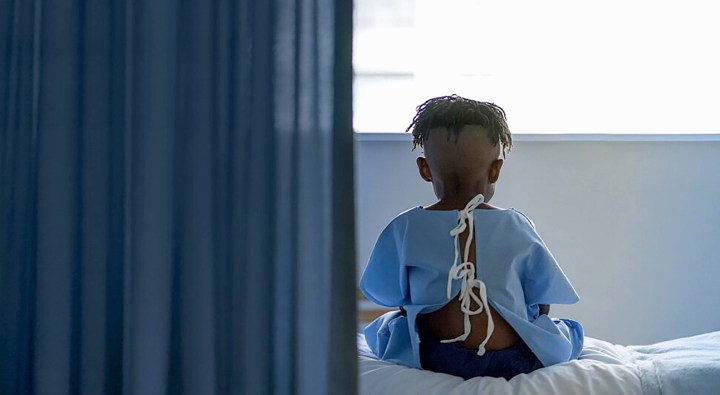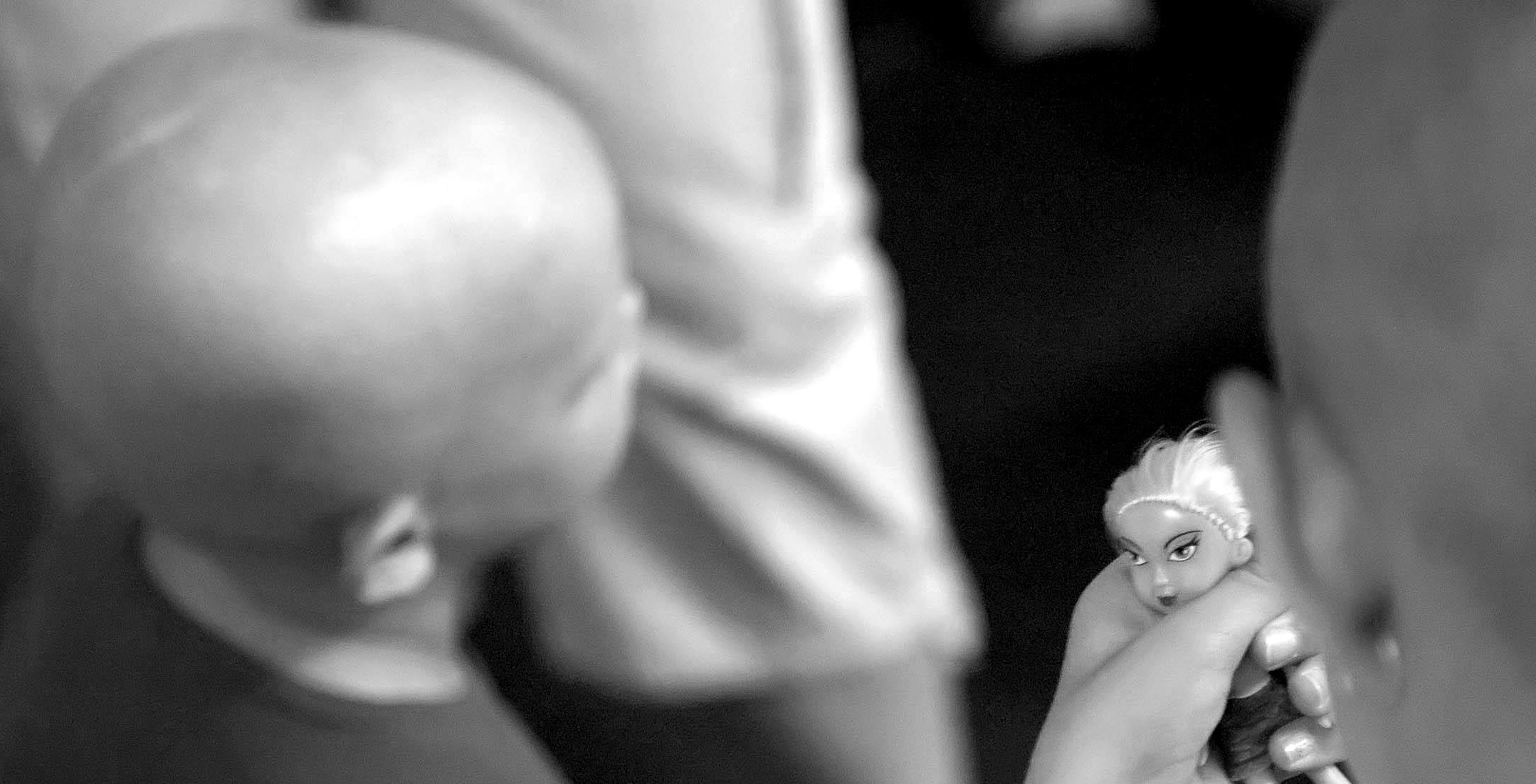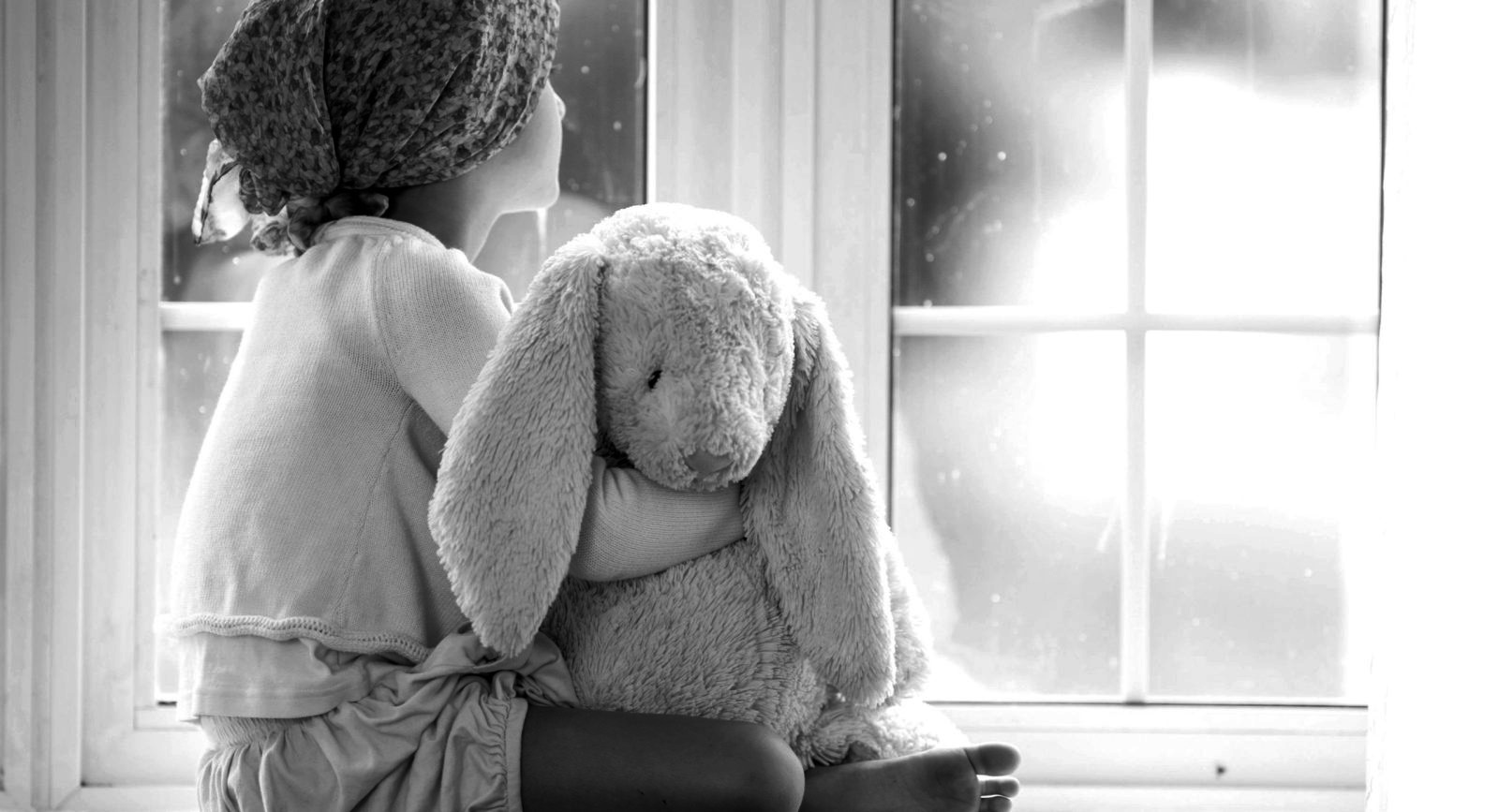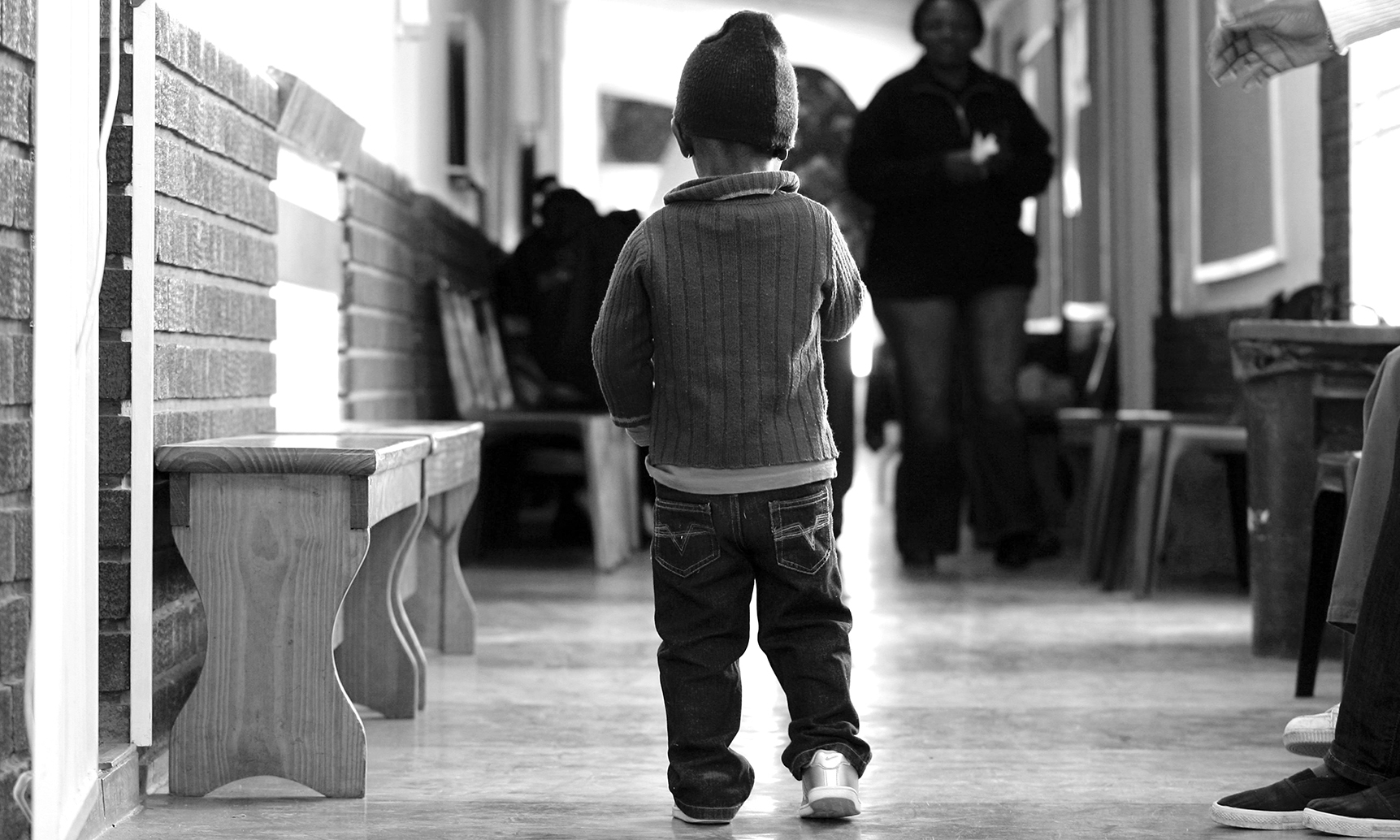PALLIATIVE CARE
Government help urgently needed to ease the pain and suffering of children who are dying — report

Research conducted in collaboration with the United Nations Children’s Fund (UNICEF) has estimated that 800,000 children in South Africa are in need of palliative care — with fewer than five percent getting it. Experts believe that figure is closer to one million today.
South Africa’s global ranking in caring for its dying citizens is a dismal 72 out of 81 countries, according to a 2021 survey by Duke University and the Global Health Institute (available here).
Unless SA is forced to meet its constitutional healthcare obligations, especially towards children — for whom not a single specialist palliative care post exists — court action is likely to follow.
That’s the message from long-suffering, thinly stretched palliative care NGOs that have been trying in vain to prompt government action for 20 years.
They have now finally had enough and are investigating the possibility of a legal challenge to force the State to provide better funding for child healthcare via the SA Children’s Palliative Care Network, (PatchSA), a collective of determined paediatricians, oncologists, veteran healthcare activists, academics and children’s rights groups.
For palliative care providers, Covid-19’s heart-wrenching images of patients dying in isolation, unable to be with loved ones in their final moments, are all too familiar.
Neglected in death
“We do everything to ensure that babies are born healthy and kept that way — but we leave their dying to churches and NGOs. Thousands are dying in unnecessary pain and are not being reached,” says Joan Marston, former CEO of the International Children’s Palliative Care Network and former chair of the Hospice and Palliative Care Association of SA.
Marston founded and helps run Sunflower House, a children’s hospice in Bloemfontein that has 12 beds and 288 children in a home care programme.

All experts interviewed by Maverick Citizen agreed that citing cost to defend dismal palliative care was not viable. While some initial expense would be required for the government to meet its constitutional obligation, proper palliative care had been shown to be a cost saver. (Photo: Waldo Swiegers / Gallo Images)
She cites 2016/17 research conducted in collaboration with UNICEF that puts the number of South African children in need of palliative care at 800,000 — with fewer than five percent getting it. She believes that figure is closer to one million today, with the level of palliative care delivery unchanged.
Global funding for palliative care had also dried up since the advent of antiretrovirals for HIV/Aids, says Marston.
Her sentiments are echoed by Mark Heywood, co-founder of the Treatment Action Campaign, Section27 and editor of Maverick Citizen.
“This case is begging to be brought to a court and, if necessary, ultimately to the Constitutional Court. It’s over-ripe and has unassailable legal merit. Government has a duty to provide quality palliative care to children and to create the healthcare systems to do this.”
Abortive legal history
Heywood lamented the failure of health rights activists to take the issue to court and appealed to the Centre for Child Law at the University of Pretoria to take up cudgels on behalf of PatchSA, which provided it with evidence.
Karabo Ozah, director of the centre, told Maverick Citizen that a file compiled by a colleague who resigned six years ago had gone missing. To her best recollection, it involved litigation against one particular hospital, which had since “taken steps to address the situation”.
She said she wouldn’t rule out a broader court application in the future.
Legal ‘no-brainer’
“It’s a legal no-brainer,” says Heywood.
“With the TAC, we built up a paper trail for three years before winning the nevirapine [a drug used to prevent mother-to-child HIV infection] case against government.
“Here you have a palliative care policy passed by the health department and all stakeholders in 2017 — for which nothing has been done. Numerous attempts by the NGO community to engage with the department, the Human Rights Commission and provincial health departments have come to nothing,” he added.
The global Index of Death report, due out at the end of this month, shows South Africa’s ranking to have dropped steadily over 11 years. In 2010, SA was 30th among 40 countries surveyed. In 2015, SA was 32nd among 80 countries — dropping to 72 on a list of 81 countries in 2021.
The study, detailed in three papers to be published soon in the Journal of Pain and Symptom Management, ranks 81 countries on how well their health systems provide for the physical and mental wellbeing of patients at the end of life.
Only six countries received an A grade, while 36 earned Ds or Fs, with the UK ranked highest, followed by Ireland, Taiwan, Australia, South Korea and Costa Rica (all A grades).
The survey asked more than 1,200 caregivers from several countries to identify what is most important to patients at the end of life. It then asked 181 palliative care experts to grade their countries’ health systems on 13 weighted factors which people most often listed, including proper management of pain and comfort, having a clean and safe space, being treated kindly and treatments that address quality of life, rather than merely extending life.
Heywood said the index revealed an “inexcusable situation” in South Africa.
“We probably have the most advanced public health system in Africa, yet SA is ranked second-worst on the continent. I’m not surprised — these findings are testimony to neglect.”

‘For those who get into a hospice or palliative care programme, it’s a little bit of heaven for the few. No matter how good it is, unless you integrate it into the healthcare system, it’s not going to reach those children who need it,’ says Joan Marston, former CEO of the International Children’s Palliative Care Network and former chair of the Hospice and Palliative Care Association of SA. (Photo: netdoctor.co.uk / Wikipedia)
He said a court case should be brought on an urgent basis because “there are thousands of children out there living with unnecessary pain at the end of life”.
Marston says that “if we see how badly we’re doing with adult palliative care, where we at least have 20 adult palliative care physicians employed by the State (with only one part-time post for paediatric palliative care), you have to ask — where would SA land if they did a similar assessment on the quality of death and dying for our children?
“For those who get into a hospice or palliative care programme, it’s a little bit of heaven for the few. No matter how good it is, unless you integrate it into the healthcare system, it’s not going to reach those children who need it.”
The position of the deputy director for palliative care at the national Health Department, Lawrence Mandikiana, is currently funded by an NGO. He did not respond to a voice message requesting comment.
Emotive lip-service
Dr Michelle Meiring, a paediatrician and founder of palliative care NGO Paedspal, says that while a national strategy and policy framework for palliative care exists, (approved in April 2017), “we’ve been knocking on closed doors for 20 years.
“Children die, usually without any form of palliative support, and so suffer unnecessary pain and discomfort. Parents are left to grieve and get on with their lives, also unsupported. Nobody really complains. There’s a lot of emotive lip-service, but no real implementation.”
Her view is backed by Prof Neil McKerrow, head of Paediatrics and Child Health for KwaZulu-Natal, and Prof Haroon Saloojee, head of the Division of Community Paediatrics at Wits University. Both are key government advisers on paediatric care.
McKerrow says NGOs are picking up the slack, “which is not their job. At provincial level, provinces have to translate the national policy and create programmes, integrating them into existing services. But they need training and support and the only resources to do that at present are the NGOs”.
Saloojee adds that “despite all our efforts, our ability to realise adequate palliative care for all remains suboptimal and distant”.
Meiring says she and her colleagues approached the Human Rights Commission after two years of inaction after the national strategy and a policy framework on palliative care were put in place. Nothing came of it.
Drip-feeding insufficient
“There was simply no State-funding for human resources — not a single paediatric palliative care post was funded… we had some integration training initiatives and opioid supply assessment, but no implementation,” she says, adding that in spite of the current constrained financial environment, generalist palliative care can be delivered cost efficiently by anyone with a basic modicum of appropriate training.
All the experts interviewed by Maverick Citizen agreed that citing cost to defend dismal palliative care was not viable. While some initial expense would be required for the government to meet its constitutional obligations, proper palliative care had been shown to be a cost-saver.
Dr Natalya Dinat, a veteran health activist, palliative care specialist and founder of the Wits Palliative Care Centre (catering to 6,000 patients annually) at the Chris Hani Baragwanath Hospital, says that a donor-funded project, started in 1998, demonstrated feasibility and good quality end-of-life care, and that savings were possible in adult palliative care.

‘Children die, usually without any form of palliative support, and so suffer unnecessary pain and discomfort. Parents are left to grieve and get on with their lives, also unsupported,’ says Dr Michelle Meiring, a paediatrician and founder of palliative care NGO Paedspal. (Photo: Gallo Images / Foto24 / Bongiwe Gumede)
Gauteng government approval came in 2006 after she and a top health economist demonstrated that for every rand spent on the Palliative Care Centre, it saved the hospital R2.
Dinat says part of the reason her centre’s work has not spread nationally is that South Africa’s health service has “all but collapsed”.
“We need massive public investment in nationally owned healthcare. Our services have been chronically underfunded, especially when private-public partnerships introduce profit factors, commoditising healthcare.
“Also, health institutions have been hollowed out with State Capture — just look at the PPE scandals. Universities and nursing colleges need to step up training for any favourable court rulings to be implemented.”
She backed the call for ring-fenced child palliative care funding, emphasising that “good, comprehensive care of dying children is as essential as any other service.
“It’s not a nice-to-have optional extra. Society can be judged by the way they treat their children and their dying. We need to do more.” DM/MC
Citations, 1; Eric A. Finkelstein et al, Cross Country Comparison of Expert Assessments of the Quality of Death and Dying (2021), Journal of Pain and Symptom Management (2021). DOI: 10.1016/j.jpainsymman.2021.12.015




















 Become an Insider
Become an Insider
Comments - Please login in order to comment.